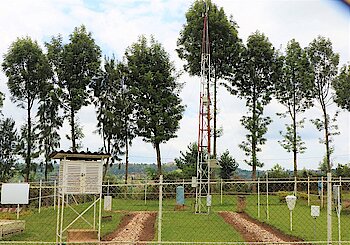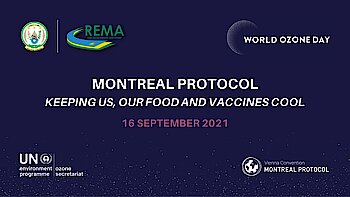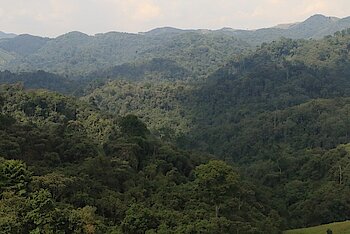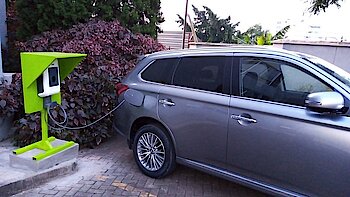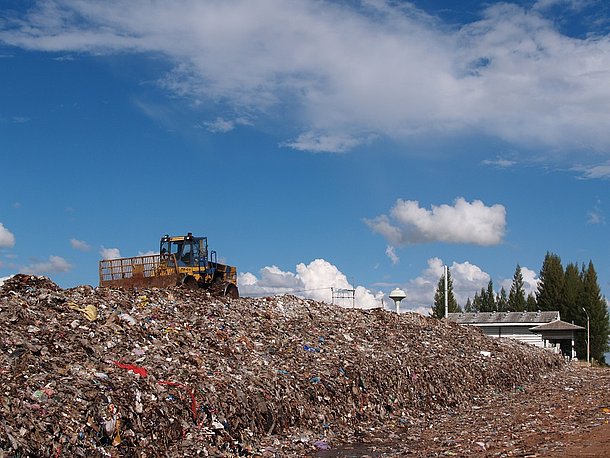
Why mitigating methane emissions is urgent now?
As methane emissions continue to increase, there are more reasons than ever to reduce methane emissions. Reducing human caused methane emissions is one of the fastest, most effective strategies to reduce the rate of warming and contribute to global efforts to limit temperature rise to 1.5C
A recent assessment from United Nations Environment Programme (UNEP) and the Climate and Clean Air Coalition found that cutting methane emissions would be a quick win to fight against climate change.
Methane is one of several greenhouse gases, which trap the sun’s heat in the atmosphere and thus cause the global average temperature to rise. Accounting for about 20% of global emissions, methane is the second most prevalent greenhouse gas after carbon dioxide, which makes up more than 70%.
Methane is many times more powerful than carbon dioxide at trapping heat. However, it breaks down much more quickly: methane is mostly removed from the atmosphere after a decade, while carbon dioxide can contribute to global warming for hundreds of years.
What are the sources of Methane emissions?
Agriculture is the main sources of methane emissions. Mainly, the livestock through enteric fermentation and manure management are the predominant source of emissions. Population growth have stimulated those emissions because of economic development and urban migration have stimulated unprecedented demand for animal protein.
The landfill also produce methane emissions when the municipal solid waste is deposited into landfill. It undergoes an aerobic (with oxygen) decomposition stage when methane is generated. Within less than one year, anaerobic conditions are established and methane producing bacteria being to decompose the waste and generate methane.
In addition, the paddy rice cultivation in which flooded fields prevent oxygen from penetrating the soil, creating ideal conditions for methane emitting bacteria accounts for another 8 % of human-linked emissions.
What are the contribution can we accomplish, if we reduce methane emissions?
It is highly important to note that, cutting methane emissions have many immediate co-benefits. In fact, reducing the methane emissions is quickly doable than implementing carbon dioxides reduction technologies such as carbon capture and storage.
The methane emissions are quickly broken from atmosphere; this means that if we put more efforts in cutting methane emissions, we can reach Paris agreement as soon as we aim, than carbon dioxide, which took a century to be broken from atmosphere.
Cutting methane emissions bring various co-benefits such as increase of food supplies, energy security, and health benefits, because the technologies to reduce those emissions bring those advantages. The actions to mitigate methane emissions include the providing animal with more nutritious feed so that they are larger, healthier and more productive, effectively producing more with less. Also famers can reduce methane by managing manure more efficiently by covering it, composting it, or using it to produce biogas.
When it comes on rice paddle, it was recommended to use alternate wetting and drying approaches that can halve emissions. Rather than allowing the continuous flooding of fields, paddies could be irrigated and drained two to three times throughout the growing season, limiting methane production without impacting yield. This process would also require on-third less water, making it more economical.
Other actions regard the emission reduction from landfills, by constructing managed landfills and produce the energy from landfill gas utilization.
Methane emissions in Rwanda
The methane emission have the high share of 65.3 % and its main predominant source is agriculture especially from the livestock emission such as the enteric fermentation and manure management. This is linked with the population growth, economic development and urban migration, which have increased the animal protein demand.
Topics
More posts
How Rwanda is using climate change data and projections to plan for the future
In 2011, Rwanda adopted a Green Growth and Climate Resilience Strategy to become a developed, climate-resilient, and low-carbon economy by 2050. To…
Rwanda celebrates World Ozone Day
Kigali, 16 September, 2021 - Today, Rwanda joins the rest of the world to mark the International Day for the preservation of the Ozone Layer. World…
Retrofit Electric Motorcycles Project; Another step towards emission reduction
The Greenhouse gases emission inventory report of 2015 indicated that the vehicles (that burns the fossil fuel) emit emissions at 13% of the total…
What you should know about Climate Adaptation Summit 2021 that is taking place online
Even though, the climate change is increasingly distressing, fortunately, there are many actions we can do to ensure our future is as prosperous as…
Beneficiaries of REMA’s Green Amayaga Project receive improved cookstoves to promote energy efficiency
Rwanda Environment Management Authority through the Forest Landscape Restoration in the Amayaga Region (Green Amayaga) Project is distributing…
Develop business and deliver green growth solutions
The economic development is a concern for every country around the World and everyone is concerned with personnel development. However, it is no…
From ambition to action: Rwanda’s climate resilience plan
On Saturday, December 12, 2020, global leaders are meeting to discuss a problem on many of our minds: climate change. The extraordinary virtual…
Green New Deal: Lesson Learned from the Republic of Korea, Rwanda and the European Union
This webinar was co-organized by the Korea Ministry of Foreign Affairs and the UNDP Seoul Policy Centre (USPC). It is the second event on the theme of…
REMA get the Electric Vehicle to support Rwanda's environmental protection efforts
The Rwanda Environment Management Authority (REMA) has taken delivery of its first ever electric vehicle that will be used to support the…
